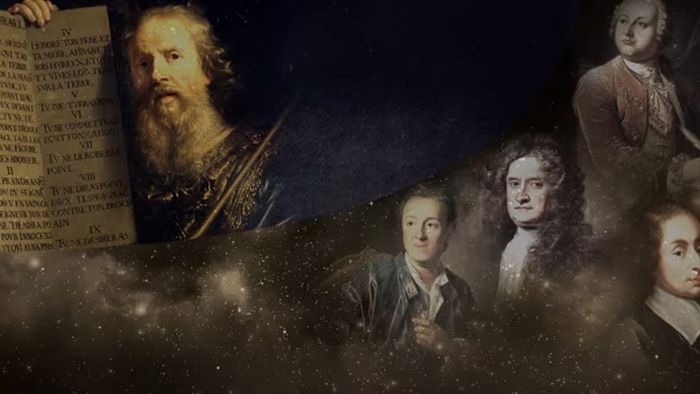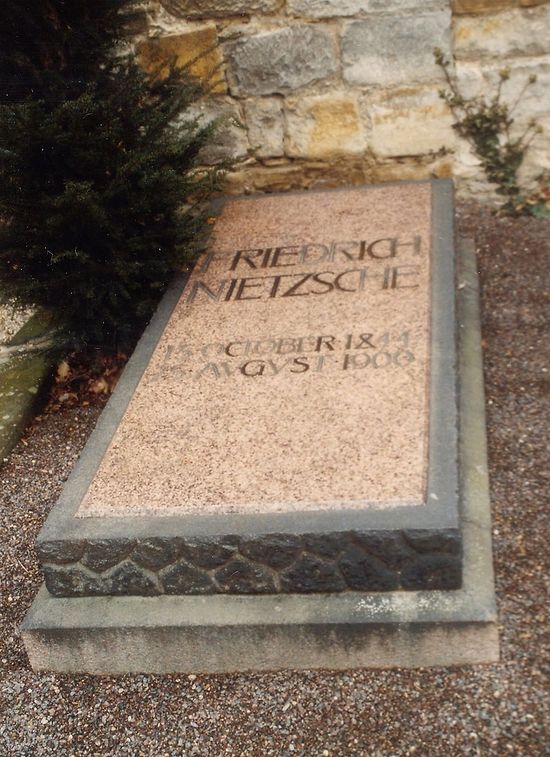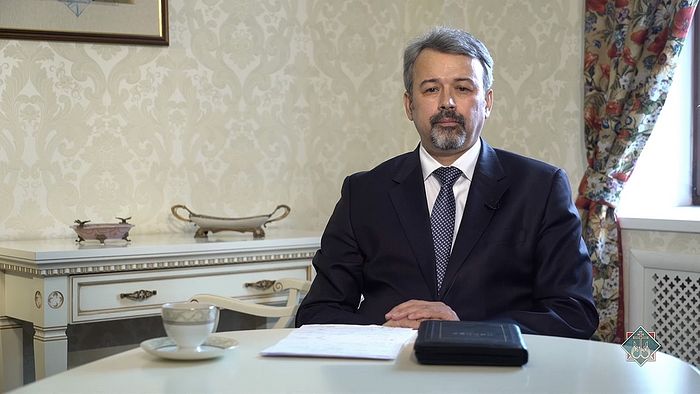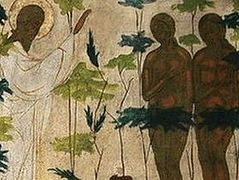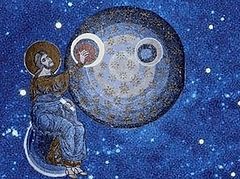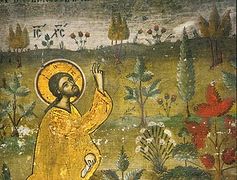Pravoslavie.ru here begins a series of discussions dedicated to interpreting the book of the Old Testament which begins with talks on the book of Genesis.
The first chapter of the book of Genesis, as we remember, speaks about how God created the world and man. Perhaps no other Biblical narrative causes such aggressive attacks as that on the creation of the world. “It’s not scientific!” is the main argument. But are science and faith truly contradictory; can scientists be believers? And are those theories that contradict the Bible truly “scientific?” Should science, in principle, concern itself with questions of the origin of the world? Religious historian Andrei Ivanovich Solodkov contemplates these questions.
I would like to begin this first talk on the book of Genesis with the words of the encyclopedia writer Denis Diderot: “Nature is not God, man is not a machine, and theory is not fact,” because before talking about this Old Testament book, which opens with the story of God’s creation of the world, it is useful to examine different theories of the emergence or creation of the world. Why is this necessary and important? Because man’s whole life depends upon how he perceives the world around him, and how he understands himself and his place in this world. St. Macarius the Great has such an expression: “Man by nature has a purpose, and God holds him accountable. And therefore He enjoins that man would understand first of all, and having understood, would love and fulfill his purpose by his own will.” As we see, without understanding love is impossible. But if there is no love, it means any activity is impossible—“to love and fulfill his own purpose, at his own will.”
There are many theories about what the world and man are and how they originated other than what is written in the Holy Scriptures, which it would be more than incorrect to call a theory because it is Divine Revelation. In the book of Genesis it says: In the beginning God created the heaven and the earth. First God creates heaven and the earth, then all of this world, then mankind. However, today it’s fashionable to deride these words of Divine Revelation. People who call themselves secular repeat as if it were their “creed”: “Science proves there is no God.” But this affirmation holds no water. First, science cannot prove or disprove something in the beginning of this world, because, to know what the world is, and to have a scientific picture of the world, it’s necessary to research it from beginning to end. And when they say “science has proved there is no God,” I want to ask: “And in which laboratory was this proven? What scientific experiments di they run in order to prove this? And who ran these experiments?” But we’re unlikely to receive answers to these questions.
The words “science has proven there is no God” are nothing more than a philosophical statement, some kind of ideology which expunges God from a man’s worldview.
The “removal” of God occurred gradually. One of the steps in the process was deism—a philosophy confessing that God is the Creator of the world, but, having created it, He later “turned away” from it, distanced Himself, “not occupying Himself” with it. God simply “wound up” the world like clockwork.
Pantheism as if confesses God, however, arguing that God is generally everything. As a result of this, the theory of the necessity of imitating nature, and merging with nature, thus making man better, more ethical, and raising the bar of his morality is derived. But of course in nature not everything is simple: there are predatory laws, there are laws of the suppression of one animal by another... Even the theory of survival has arisen.
I would like to dwell in more detail on the theory of materialism, which says that man came from nowhere and is going nowhere. I want to first note that many theories about the origin of this world and man, of the meaning of human life on earth, reject God—as the Psalmist David said: The fool hath said in his heart, There is no God (Ps. 13:1)—ascribing all the qualities of God to the created world. So, for example, materialism teaches that matter is eternal. But we, Orthodox people, know that this dignity belongs only to God. God is eternal, infinite, omnipresent, omnipotent, and omniscient. But as, in the words of the ecclesiastical teacher Tertullian, “the soul is by nature Christian,” and was created to be faithful, man, having lost his faith, having renounced God, transfers the qualities inherent to God to the created world. Materialists ascribe eternity to material.
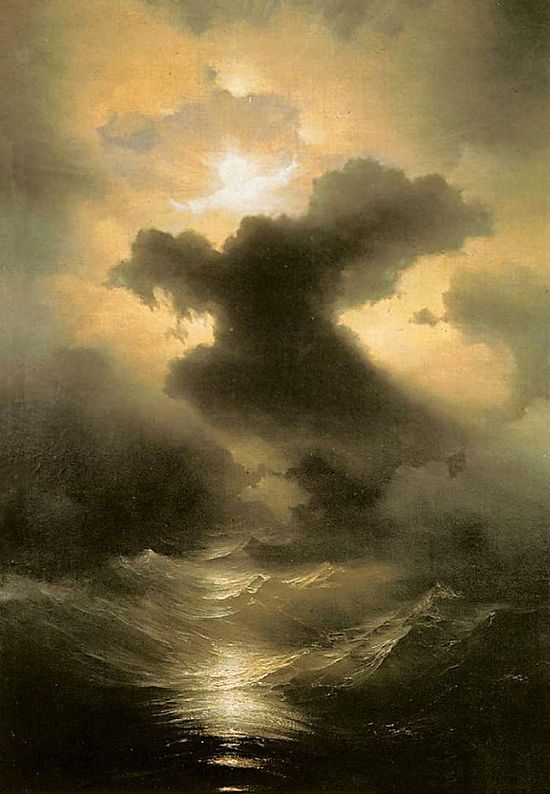 I. K. Aivazovsky. Chaos (Creation of the world). 1841, oil on paper 106х75cm, Museum of the Mekhitarist congregation. St. Lazar, Venice
I. K. Aivazovsky. Chaos (Creation of the world). 1841, oil on paper 106х75cm, Museum of the Mekhitarist congregation. St. Lazar, Venice
This theory teaches that matter was dead, then there arose some kind of organic broth, and suddenly there was some kind of reaction, and life appeared. All of this was supposedly billions and billions of years ago. Infinity is attributed to the created world. Ask today: is the universe finite or infinite? Many will say: “infinite!” No, the universe has its end. Only God is infinite and beginningless. Science has as yet not proved where this edge of the universe is, but it certainly exists.
And as the answers to the questions “Who am I?” and “Where did I come from and where will I go?” depend on a man’s worldview and his perception of the world and his self-consciousness and self-awareness, many people, believing in the theory of materialism and atheism, denying God, often behave in such a way that sometimes, as we say, you will be astonished. And this is no coincidence. Why? Because when a man believes that he came from some kind of dead matter, came from nowhere and is headed nowhere, and when he believes that he will die and his life will be over—they will bury him and burdocks will grow on his grave, as Leskov wrote, and nothing more of him will remain—how will the behavior and life of such a person be?—“Take everything from life; don’t allow yourself to wither.” The Apostle Paul writes: If we do not believe that Christ died and rose again, then our faith is in vain (cf. 1 Cor. 15:13-14): we will eat, drink, go for walks and have fun—so why constrain yourself?
And if man thinks himself entirely a material creature, then most important for him will be that material, and it is not surprising that today people give priority to the material, and from such a worldview become as if lifeless people, both in their attitude to other people and to nature. It’s such a destructive attitude. Why restrain the fornicator? We only live once—come on, let’s enjoy it to the end. Why restrain the drunkard? We live once—and so they say: “Fill ‘er up, I’m gonna die either way.” Why restrain the man who uses narcotics: give them to him—a man only lives once—he should use everything. The materialistic worldview and rejection of God can really be taken this far.
The righteous words of the Psalmist David that I recalled above: The fool hath said in his heart, There is no God, continue, They are corrupt, they have done abominable works (Ps. 13:2).
So all these theories, rejecting God, are to a greater extent built not upon scientific proofs, but upon philosophical and biased ideologies. I’ve had to explain to people what exists if not God. And I think the well-executed ideological order to implement an atheist consciousness in our society was well paid for. But the supposed scientific proofs that the world allegedly emerged accidentally without God, which we encounter even in textbooks, have no scientific basis whatsoever.
And how so many celebrated, including “scientists,” applauded when Nietzsche declared: “God is dead.” Everyone applauded, all of Europe: “What a man! As he said!... God is dead!” And so today, forsaking God, people with perverse minds delight in the “black square”[1] art or something like that.
The story of the grave of Nietzsche, that nihilist, comes to mind. His gravestone has been damaged. “God is dead!” was written on it; so some people wrote “Nietzsche” over the word “God” so that it reads, “Nietzsche is dead.” Such a cruel joke fate, in which he so believed, played with him. He professed there to be no God and that everything is predetermined by some impersonal material of rotating molecules and atoms.
But let us turn to the words of some great scientists to understand if they truly rejected God and if God was truly alien to them. I think no one will doubt the words of the physicist and mathematician Isaac Newton. He wrote: “The wonderful arrangement of the universe and the harmony within it can be explained only that the universe was created according to the plan of an omniscient and omnipotent Being. This is my first and last word.”
And here is the testimony of Albert Einstein: “Every serious natural scientist must be in some sense a religious person. Otherwise he cannot imagine that those incredibly subtle connections that he observes were not invented by him. In the infinite universe is manifested the action of the infinitely perfect Mind.” And further: “The typical presentation of me as an atheist is very misleading. If this is an understanding drawn from my scientific work, I can say that they have misunderstood me.”
Is there testimony from Russian scientists? There is. Michael Lomonosov, for example: “The Creator gave the human race two books: in one He showed His majesty, in another His will. The first book is this visible world. In this book of the composition of the visible world—physicists, mathematicians, astronomers and others interpret events taking place in nature by the will of God as do the prophets, apostles, and Church teachers in Holy Scripture.” And further he concludes: “Whoever wants to measure the Divine will with his compass cannot reasonably be considered a mathematician.” How true! “Whoever thinks you can learn astronomy or chemistry from the Psalter also cannot reasonably considered a teacher of theology.” Michael Lomonosov is saying that every scientist should occupy himself with his domain. And it’s impossible to measure the Divine Mind with a compass.
Russian philosopher Vladimir Soloviev, despite all his vacillations to different sides, wrote: “It is impossible to measure your mind with a wooden yardstick.”
I can’t help but bring in here a poem of Lomonosov, who, as we all know, was not just a scientist, but also a poet:
Here, O Lord, my voice,
When I call upon Thee,
And save me every hour:
To Thee I resort.
To the light of Thy Face
I fix the eyes of my soul,
And from the All-Merciful Creator
I daily receive His ray…
Deliver me not in this life
To the souls of godless men,
With Thy right hand protect me
From false accusations.
As we see, he asks: “To Thee I resort—deliver me not in this life to the souls of godless men.” And this is his address to those who say that God is supposedly “within the soul:”
O you, who honor God in limited fashion
Fasten upon the thought taught by this saint,
That now speaks to us from the face of heavenly
powers.
At the mercy of the Most High, at the truth bow down
And to your Mother the Church be reconciled
Such amazing words from an scholar!
We can also recall the words of surgeon N. I. Pirogov, and chemist D. I. Mendeleev, and other scientists, who did not reject God.
Conscientious men of science always say: “We’re not building a theory about how the world came about. We only study that world and its laws, which already exist.” And indeed, science does not create this world—science only reveals the laws which were created. Tell me, weren’t there chemical elements before Mendeleev ordered them in a table?[2] There were, of course. Was not there gravity before the law of attraction was formulated? Of course there was. And what did scientists do? They revealed it. Was not there atomic energy before scientists discovered it? There was. What did scientists do? They discovered it.
Scientists only reveal this or that law. But the Creator of all these laws is God—the Creator and Protector of the world.
But we will devote our next meeting to this.

